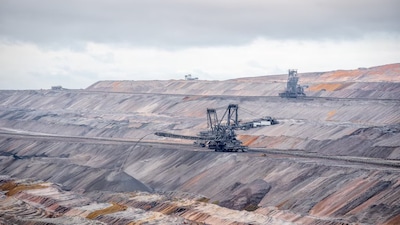India’s coal imports increased by 2 per cent, reaching 182.02 million tonnes (MT) in the April-November period of the current fiscal year, up from 178.17 MT during the same period last year, according to data compiled by business-to-business e-commerce company mjunction services.
However, the country’s coal import dropped to 19.57 MT in November, down from 22.30 MT in the corresponding month of the previous fiscal year. The decline in November imports was largely in line with market expectations, as ample domestic coal availability reduced the need for imports.
Also ReadChange of guard at Avenue Supermarts: Noronha steps down, Unilever’s Asawa to be CMD
Vinaya Varma, MD and CEO of mjunction said, “The drop in volumes was expected. Ample availability in the domestic market reduced import demand from key sectors like sponge iron and steel. Additionally, the comfortable stock position at power plants led to muted demand for imports.”.
Also Read South Western Railway announces partial cancellation, diversion of trains for track maintenance Poco F7, F7 Pro quick review: Limitless value? Non-coking and coking coal imports
During the April-November 2024 period, non-coking coal imports amounted to 117.73 MT, slightly lower than the 118 MT imported in the same period last year. Coking coal imports, on the other hand, were down at 36.93 MT, a decrease from 37.97 MT in the previous year.
Also ReadFoxconn pulls plug on Chinese workers to India, equipment from China also paused to iPhone plants: Report
The government has been focusing on increasing domestic coal production and reducing reliance on coal imports.
As per the current import policy, coal can be freely imported by consumers based on their needs and commercial discretion. Coking coal, primarily used in steel manufacturing, is imported by Steel Authority of India Ltd (SAIL) and other steelmakers to meet the gap between domestic supply and demand. Non-coking coal is mostly imported by power plants, cement producers, and industrial consumers, while coke is imported mainly by pig iron manufacturers and the iron and steel sector.
(With PTI Inputs)
» Read More


